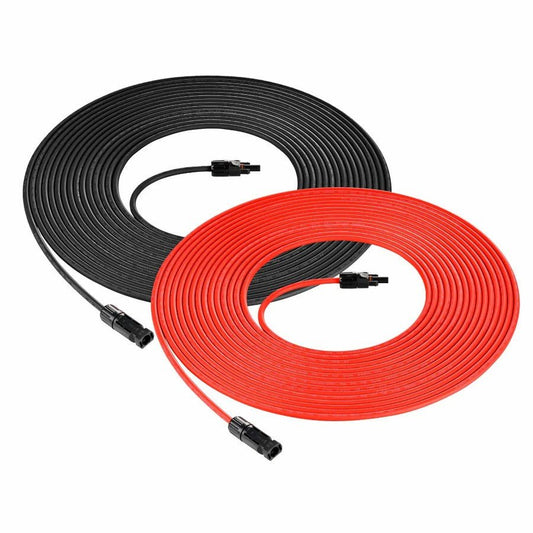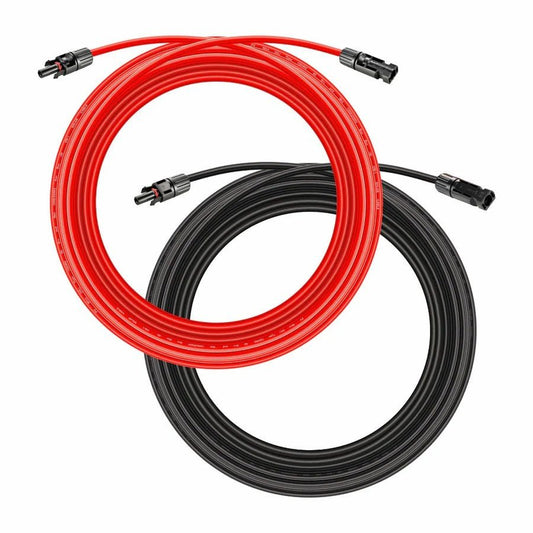Your Cart
Are lithium LiFePO4 batteries good?

LiFePO4 batteries are a new type of lithium ion technology that uses lithium iron phosphate as the positive electrode material. They are becoming an increasingly popular type of lithium battery for the following reasons:
- High discharging and charging efficiency: Charge and discharge efficiency can reach as much as 90%, compared to only 80% for lead-acid batteries.
- High safety performance: Stable construction that doesn’t decompose, heat up or collapse like other lithium ion battery materials.
- Long battery life cycle: Has a life cycle of over 2,000 times compared to 300 times for long-life lead acid batteries. Theoretically, it could last between 7 and 8 years.
- Performs well at temperatures: The LiFiPO4 battery performs well at extremes of temperature with an operating range of -20C to +75C. Heating peak can reach 350°C-500°C
- High capacity battery: Compared to lead acid batteries and other lithium-ion batteries, the LiFiPO4 battery has a much larger capacity of between 5AH and 1000AH.
- Zero memory effect: LiFiPO4 batteries have no memory effect, unlike other rechargeable batteries.
- Lightweight: A LiFePO4 battery weighs one third that of lead-acid batteries.
- Environmentally-friendly battery: Generally considered free of rare and heavy metals, non-polluting, non-toxic, and in compliance with European RoHS requirements.
Is LiFePO4 better than lithium-ion batteries?
There are several factors that make LiFePO4 better than lithium-ion when it comes to batteries.
To start with, the cycle life of a LiFePO4 is much greater than a lithium battery, by more than four times.
In addition, LiFePO4 is the safest lithium battery type currently on the market. In terms of safety, it far exceeds lithium ion.
Another feature that makes them better is that they can reach 100% DOD or depth of discharge. What this means for the user is that they don’t have to stress over discharging the battery. Moreover, a quality LiFePO4 battery has a much longer lifespan. It’s rated at around 5,000 cycles, which is roughly 10 years. Over time, the average cost is also much better.
Are LiFePO4 batteries better than all non-lithium batteries?
It’s not just lithium batteries that fail to live up to the efficiency and effectiveness of lithium iron phosphate batteries. LiFePO4 batteries are better than all other battery types in general.
Stable, Safe Lithium Chemistries
When it comes to batteries, safety is an important issue. You may have read several news stories about lithium-ion laptop batteries exploding, for example, which of course is a little worrying.
The issue doesn’t arise with lithium iron phosphate batteries because they have the safest lithium chemistry. Its structural and thermal stability levels can be matched by other types of battery, including lead acid. It can withstand higher temperatures without fear of decomposing and is incombustible. It keeps cool at standard room temperatures and is not at risk of thermal runaway.
Exposing a lithium iron phosphate battery to extreme temperatures, short circuiting, a crash, or similar hazardous events won’t cause the battery to explode or catch fire.
This fact alone can be of great comfort for people who choose to use deep cycle lithium iron phosphate batteries on a daily basis in their scooter, bass boat, liftgate, or RV. .
Excellent Performance and Efficiency
LiFePO4 batteries have an excellent reputation when it comes to performance and efficiency. Here are some stats to explain:
- They reach a full charge in two hours and sometimes even less.
- Self-discharge rate is a mere 2% per month, compared to lead acid batteries which are 30%.
- Compared with other lithium-ion and lead acid batteries, runtime is much higher.
- Power is consistent even when the battery life is below 50%.
- Zero maintenance.
LiFePO4 vs. Lead Acid Batteries
There’s no denying that lead acid batteries are a much cheaper outlay initially, however, in the long run, you’ll end up paying more. With lead acid batteries, you need to factor in the cost of maintenance and frequent replacement.
LiFePO4 vs. Gel Batteries
Gel batteries are similar to LiFePO4 batteries in that they don’t need to be recharged as frequently as other types of battery. In addition, they don’t lose charge when not in use. The main difference between these types of batteries is that gel batteries are very slow when it comes to recharging. You also need to make sure that you disconnect them as soon as they are 100% charged to avoid damaging them.
LiFePO4 vs. AGM Batteries
AGM batteries will make a huge dent in your wallet and the risk of damaging them when they are drained past 50% capacity is massive. Maintenance can also be very challenging.
LiFePO4 vs. NMC Batteries
Considering factors like cycle life, depth of discharge, and cost per kWh, LFP batteries are the better choice by leaps and bounds. However, which battery will be better for you can vary depending on the usage you require. Check our guide for a more in-depth comparison of lithium NMS vs. LiFePO4 batteries.
What are the different applications and uses of Lithium Iron Phosphate batteries?
LiFePO4 batteries have proven to be beneficial for a wide range of applications, for example:
- Solar systems: Because they are lightweight, you can haul them wherever you need to set up a solar system, even if its at the top of a mountain and far away from civilisation.
- Kayaks and fishing boats: You can enjoy more time out on the water because they have a longer runtime and lower charging time. Less weight on your boat also means it will be more manoeuvrable and able to move quickly.
- Commercial applications: LiFePO4 batteries have a wealth of commercial applications because they are so safe and tough.
- Mobility scooters and mopeds: You don’t have to charge them fully if you just want to make an impromptu trip.
LiFePO4 batteries can also be used to power electronic cigarettes, emergency lighting, flashlights, radio equipment, and more.
Can you use a Lithium Iron Phosphate battery in a car?
In most cases, LiFePO4 batteries work as a direct replacement for lead acid batteries, without any changes needed to the vehicle system settings.
Can I use a Lithium Phosphate battery as a starter battery?
LiFePO4 batteries have only been around since 1996 but they have become the most common choice for lithium starter batteries.
Are LiFePO4 batteries safe?
LiFePO4 are the safest type of lithium battery because they are not prone to overheating and even if they’re punctured, they won’t catch on fire. The cathode material is also non-hazardous and therefore it poses no environmental or negative health hazards.
Can LiFePO4 batteries explode?
Generally, lithium iron phosphate batteries do not explode or ignite. They are safer in normal use than other lithium or lead acid batteries, but can be dangerous in some extreme cases.
How long do Lithium Iron Phosphate batteries last?
Lithium iron phosphate batteries have a life of up to 5,000 cycles at 80% depth of discharge, without decreasing in performance. The life expectancy of a LFP battery is approximately five to seven years.
Are LifePO4 batteries better for the environment?
Compared to other lithium battery technologies, LiFePO4 batteries use more abundant and non-toxic materials that can be produced with less energy, so they are much better for the environment.
No comments





















0 comments